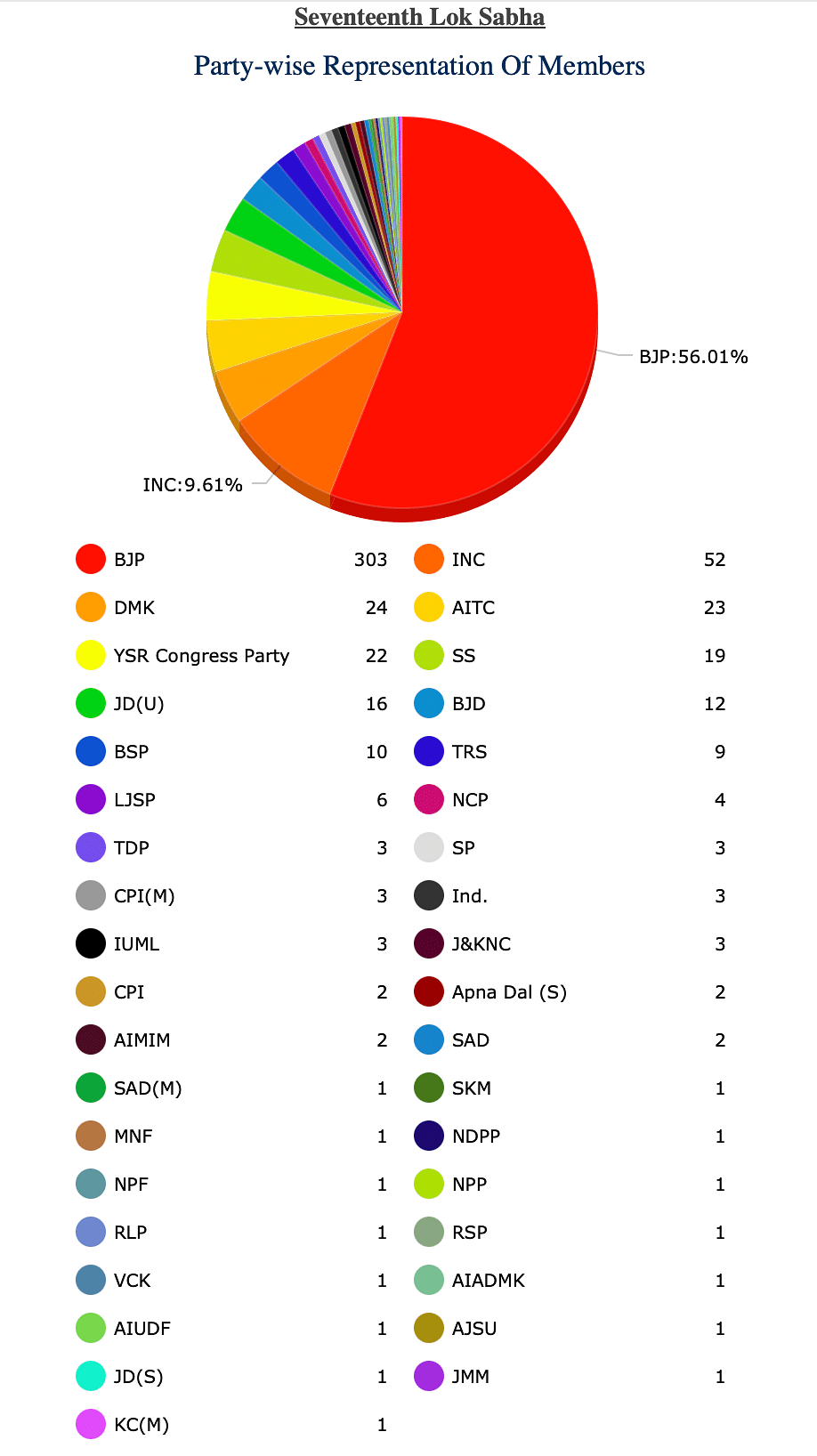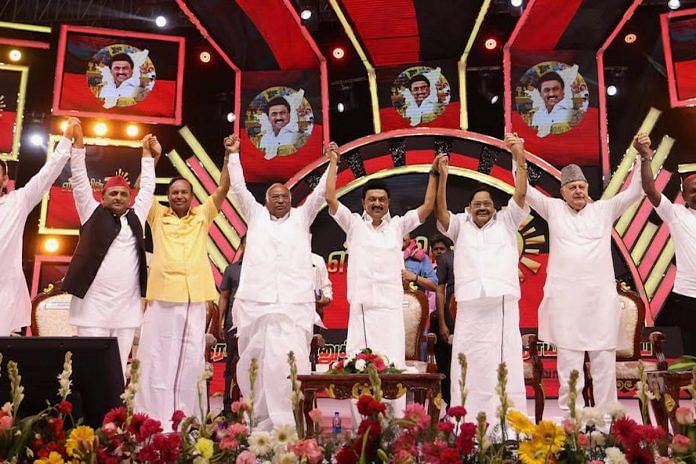It is not surprising that Congress president Mallikarjun Kharge has ruled out projecting anyone as a prime ministerial candidate for the 2024 Lok Sabha election. His statement is more practical in nature and should be seen as an open admission of the fact that there can be no opposition unity under the Congress umbrella. Talks of opposition unity, leaders coming together under one or the other pretext, and issuing of statements affirming a united fight against the BJP have become rituals as the general election nears. So, all talks of opposition unity, a short-lived ritual, have begun for the 2024 election.
Tamil Nadu chief minister MK Stalin, whose birthday provided an opportunity for opposition leaders to gather in Chennai, has nixed the idea of a third front. “Thoughts for the third front are pointless,” he is reported to have said. For the Dravida Munnetra Kazhagam (DMK), which has partnered and shared power at the Centre with both BJP-led NDA and Congress-led UPA, a third front cannot be an alternative because such a front has the least chance of coming to power ever. By remaining outside of such a front and yet calling for opposition unity, parties such as DMK have a better chance of winning enough seats to gain bargaining power.
The total Lok Sabha strength of all such parties talking of opposition unity is not more than about 200, with just seven parties, apart from Congress, having double-digit strength. Out of these seven parties, the status of Shiv Sena is unknown as the Election Commission has recognised the rebel faction as the official Shiv Sena, which incidentally is in power in Maharashtra with the BJP. The Biju Janata Dal (BJD) and the Bahujan Samaj Party (BSP) have not been part of any opposition unity talks so far. They are likely to keep out of such a platform.

In any case, the prospects of the BSP getting a ‘bargainable number of seats in Uttar Pradesh look bleak. The BJD too does not appear to be in the mood to join the opposition bandwagon and share its seats with parties that have no base in the state. The National Conference (NC), whose leader was hobnobbing with the Congress and the DMK at the birthday bash in Chennai, has no constituency outside Jammu and Kashmir. Even in the J&K assembly election, the Abdullahs of NC may find the going tough. One should not be surprised if the breakaway faction of the Congress led by Ghulam Nabi Azad manages to get a political foothold in J&K and win a seat or two in Lok Sabha. In any case, it is unlikely that such breakaway parties and leaders will ever reveal their cards before the election dates are announced. They would prefer to keep every side guessing and come to the bargaining table at the last moment.
Also read: Anti-BJPism didn’t work for Muslims. Now it’s making the Opposition lazy
Why opposition unity is impossible
Repeated attempts at forging a united platform against the ruling party have failed to produce desired electoral results. In fact, the only time it was successful was when parties opposed to the Congress came together in 1977 after the Emergency. But many of these parties that united under the banner of Jayaprakash Narayan’s movement merged into one Janata Party. But very soon, the so-called ‘opposition unity’ fragmented and went in separate directions. Some of them found new seats to win but none could ever graduate to become a national party, except the Bharatiya Jana Sangh which later became the BJP in 1980.
The argument is that only about 36 per cent of the people have voted for the BJP (2019 election) and hence the rest of the 64 per cent could be brought together to vote against the BJP if the anti-BJP parties put up a single candidate. It is a naïve thought, to say the least. Every state, in fact, every constituency, seems to behave differently at different times. While the opposition unity worked against the Congress after the Emergency excesses were made public, the only other time the Congress could get nearly 50 per cent of the total votes polled was in 1984 after the tragic assassination of Indira Gandhi. So, the logic of ‘what is important is not who wins but who needs to be defeated’ will not likely enthuse voters to vote against the BJP.
The BJP under the combined leadership of a charismatic prime minister and a strategist home minister aided by a strong cadre base organisation is difficult to be dislodged by “birthday party gangs.” There was a time when Congress was seen as a national alternative to the BJP. But under the leadership of a “serial failure”, the party has lost its pre-eminence as an umbrella for anti-BJP parties to forge an alliance. No regional party would want to share its local strength with the Congress, which is fast moving towards the dustbin of history.
A faceless opposition with no common minimum programme, no all-India presence and no attractive people-friendly alternative agenda will hit the headlines for a few days and be forgotten even before the electoral race for 2024 begins.
Seshadri Chari is the former editor of ‘Organiser’. He tweets @seshadrichari. Views are personal.
(Edited by Prashant)



